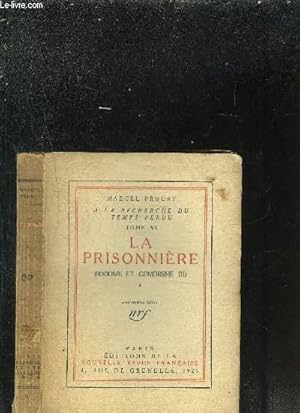
I ended my previous post about The Captive with the following paragraph:Ĭhapter 2 is entitled: Les Verdurin se brouillent avec M. In a situation so cruelly unforeseen as this one, the great talker could only stammer, “What’s the meaning of this? What’s going on?” He could hardly even be heard.La Prisonnière by Marcel Proust. If they had been pleasant to him, then instead of becoming intoxicated with rage against them, he would have put his arms round them. When he hated people, it was because he thought those people despised him. But in those cases he had the initiative, he could go on the attack, say whatever he pleased (just as Bloch could make jokes against Jews, but blushed if anyone mentioned their name to him). de Charlus was on fire, in the grip of genuine nervous attacks which left everyone trembling. de Charlus could call on all the resources not only of eloquence but of boldness when, possessed by a rage which had been bubbling up inside him against someone, he would transfix him, reduce him to utter despair by the cruelest words in the hearing of polite people who stood aghast, never having imagined that anyone could go so far. “could do nothing but cast frightened glances in all directions, expressing incomprehension, indignation at the attack on him and mute calls for help.

The Prisoner: In Search of Lost Time, Volume 5 “His smile, at the thought of the departed salon which he could see once more, let me understand what it was that Brichot, perhaps unconsciously, preferred about the old room: not its big windows, not the youthful gaiety of the Patrons and their friends, but that unreal part (which I had reconstructed myself from a few similarities between La Raspelière and the Quai Conti) of which, in a drawing-room as in everything, the outer part, present and observable by everyone, is simply an extension: that part which had become purely spiritual, whose color existed only in the mind of my old companion, who could not show it to me, that part which detaches itself from the outer world to find refuge in our souls, which it enhances, and with whose normal substance it merges, transforming itself there-vanished houses, people of former days, dishes of fruit from remembered suppers-into the translucent alabaster of our memories, whose color we cannot show to others as only we can see it (so that we can truthfully say to them that they cannot imagine the past, that it was nothing like anything they have seen), and which we cannot contemplate inwardly without being moved, when we think that the existence of our thought is the condition of these things’ continued survival, for a little while, the light of lamps that have gone out and the scent of arbors that will flower no more.”


 0 kommentar(er)
0 kommentar(er)
